Toolbox in Action
Explore how participatory meanwhile interventions unfolded in the context of seven regeneration initiatives across Europe & Asia.
Particularly suggested for policy-makers, practitioners, and researchers.
Highlights
Science Park Amsterdam
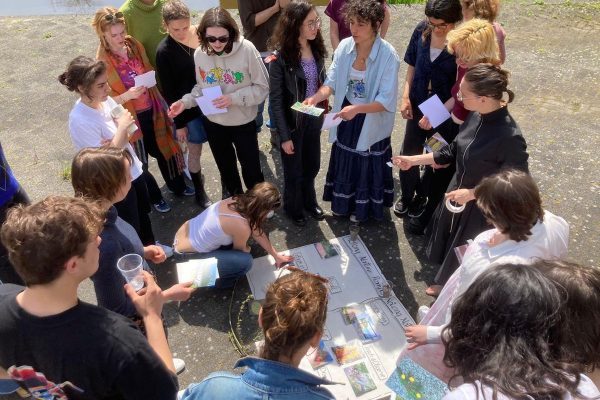
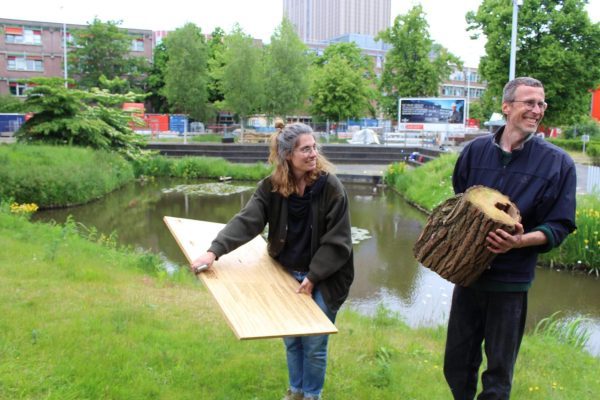
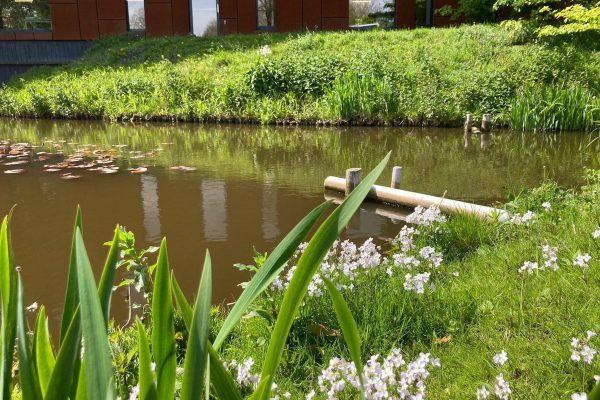
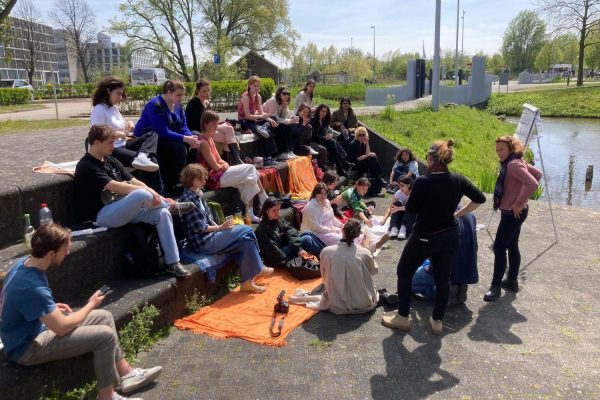
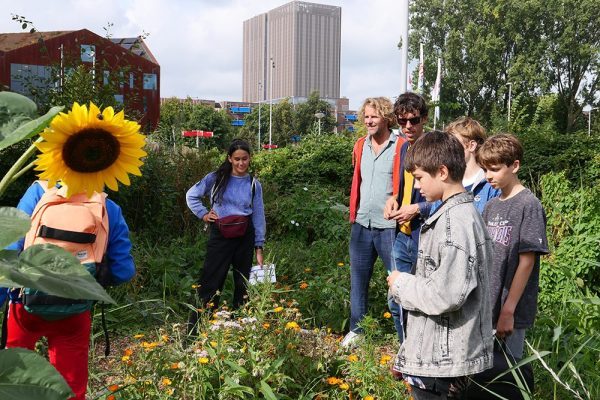
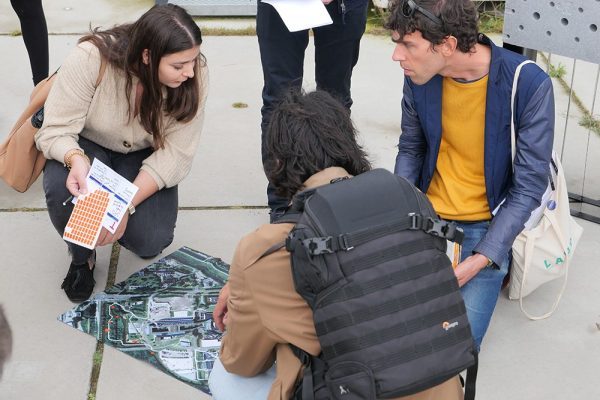
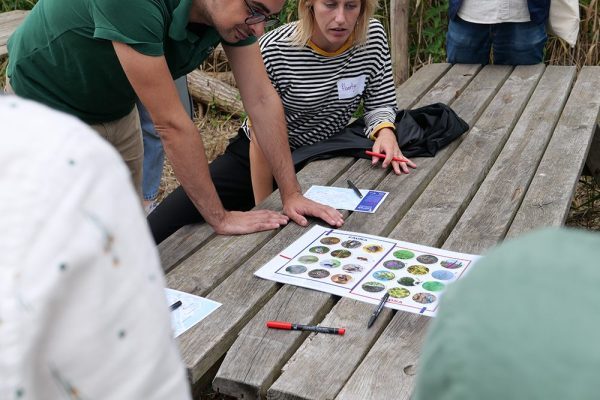
Extract of an interview with Waag FutureLab Team, December 2023.
Speculative and real-world approaches to urban ecology
‘It was a serendipitous start for both T-Factor and our pilot project. Our pilot project had a clear thematic focus, which had been a topic of conversation at the Science Park for over a year. The idea was to transform the Science Park from a closed-off science centre into an outward-facing laboratory-museum, bridging scientific and artistic practices for a broader audience. This was our starting point. As the project took shape, we were already considering an alternative master plan, to juxtapose our current reality with a speculative one. We aimed to mesh this speculative approach with the tangible reality of the Science Park, leveraging both. The Netherlands boasts an expansive ecological infrastructure. While the municipality prioritises biodiversity and greening, the Science Park lags. Our goal was to layer these perspectives and policies to find intervention points, grounding our ambitious vision with real-world constraints.’
Boldness and early experimentation
‘One key takeaway was the importance of boldness and early experimentation in European projects, rather than adhering strictly to a project’s typically slow pace. This proactive approach proved advantageous. From the onset, we began experimenting, brainstorming, and testing ideas with stakeholders. This collaborative approach, especially in deepening our urban ecology focus and co-creating with local stakeholders, was a success from the start.’
Community needs
‘Beyond our greening initiative, local residents have diverse concerns, from quality of life to security. This creates a tension between our specific agenda and broader community needs. When engaging in co-creation, it’s crucial to strike a balance between sticking to our thematic goals and remaining receptive to varying starting points. Especially with topics like urban ecology, where grassroots efforts rely on people’s intrinsic motivations, it’s essential to offer a clear scope while being adaptable to residents’ concerns. From the outset, our approach was dual-faceted. We had concrete project goals alongside broader aspirations. This led us to prioritise co-creation sessions and workshops, fostering partnerships and understanding from the start. Balancing our urban ecology agenda with ground realities was vital, not just with residents but also with professional stakeholders in the park, considering many are there for work rather than as residents or visitors‘.
Navigating governance and policy layers
‘During the initial phases, we saw numerous policy layers, especially eco-policies. These policies have depth but lack strong implementation or oversight. They’re more like ‘nice-to-haves’ or what might be termed ‘framework outlines’ . We investigated the Science Park’s governance structure. It’s led by The National Science Institute, a primary scientific research funder, and manager of several institutes located within the park. It’s unique, partly because of its role as just the science council, but also because it owns portions of the park land. This is a distinct activity for them, aside from funding. Then there’s the UvA, a vast university campus, and the municipality, which partners with a major bank to finance some of the park’s commercial ventures. The municipality owns and maintains the pathways and greenery, while waterway ownership is split between different entities, with the water itself managed by a public organisation. The intricate ownership dynamics combined with a multi-layered management structure, characterised by periodic meetings and delegated duties, made understanding and navigation complex. This structure produced a master plan around 2012, with an update in 2019. However, clarity on ownership was lacking due to its federative nature’.
Strategic engagement
‘Our bottom-up approach aimed to tactically realise objectives while engaging with these governance layers. During the initial phase, it was challenging to get recognition within this system. Surprisingly, our efforts weren’t as well received as expected, given the policy goals promoting greening and adding vibrancy to the park. While the updated master plan emphasised these aspects, our entry, backed by European research funding, wasn’t universally applauded. Our introduction with the ‘laboratory as a museum’ concept set us apart, as innovators with fresh perspectives, albeit potentially disruptive to their routine. But trying to engage all stakeholders was like a never-ending marathon. Our approach combined individual meetings over coffee with visioning workshops, pulling in both grassroots participants and policy representatives from different organisations.’
Privacy Overview
| Cookie | Duration | Description |
|---|---|---|
| cookielawinfo-checkbox-analytics | 11 months | This cookie is set by GDPR Cookie Consent plugin. The cookie is used to store the user consent for the cookies in the category "Analytics". |
| cookielawinfo-checkbox-necessary | 11 months | This cookie is set by GDPR Cookie Consent plugin. The cookies is used to store the user consent for the cookies in the category "Necessary". |
| CookieLawInfoConsent | 1 year | Used to save user's preferences about the cookies. |
| PHPSESSID | session | Preserves user session state across page requests. |
| viewed_cookie_policy | 11 months | The cookie is set by the GDPR Cookie Consent plugin and is used to store whether or not user has consented to the use of cookies. It does not store any personal data. |
| Cookie | Duration | Description |
|---|---|---|
| _ga | 2 years | This cookie is set by Google Analytics. It is used to identify unique users and it expires after 2 years. |
| _gat | 1 minute | This cookie is set by Google Analytics. It is used to by Google Analytics to throttle request rate. |
| _gid | 24 hours | This cookie is set by Google Analytics. It is used to identify unique users and it expires after 24 hours. |